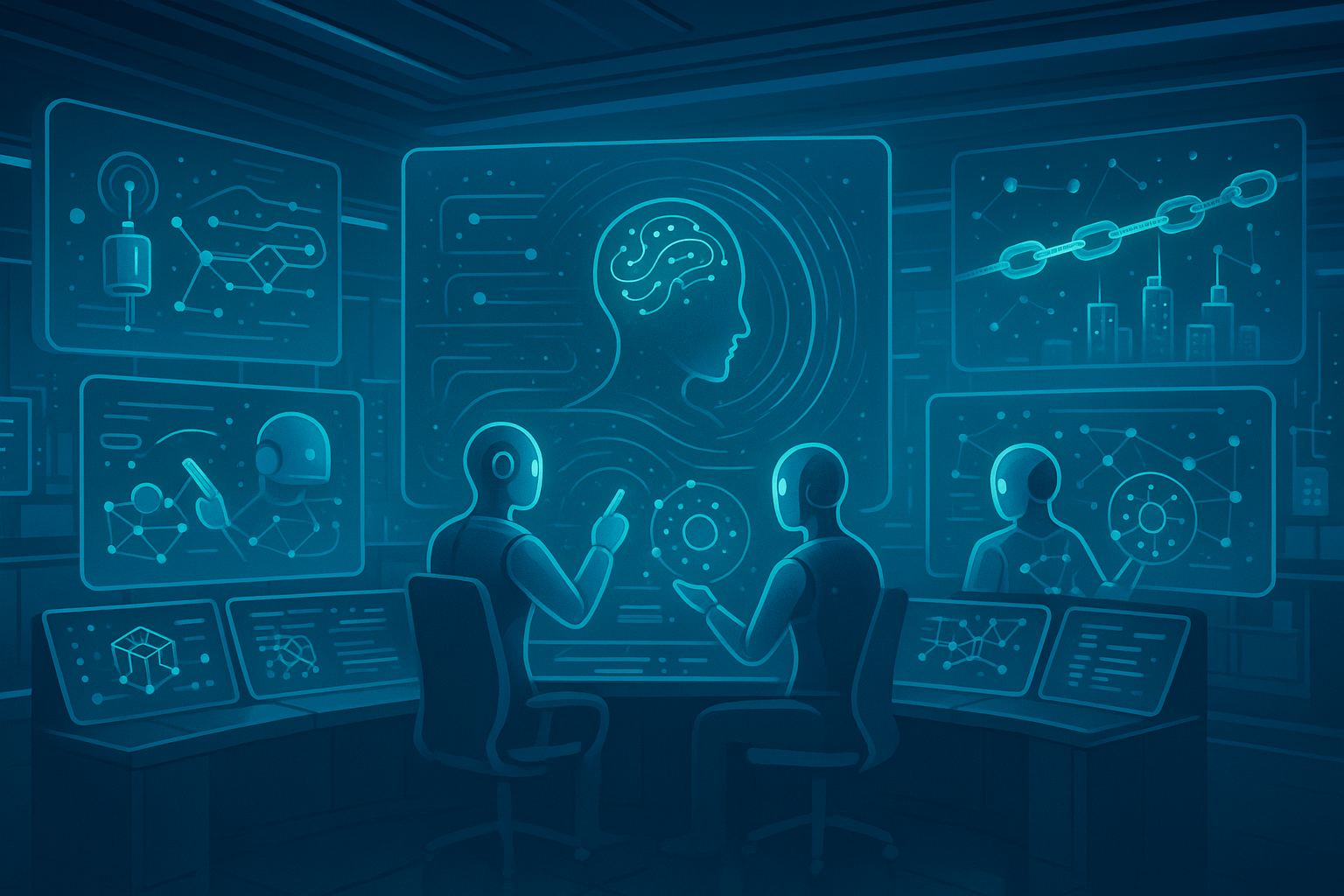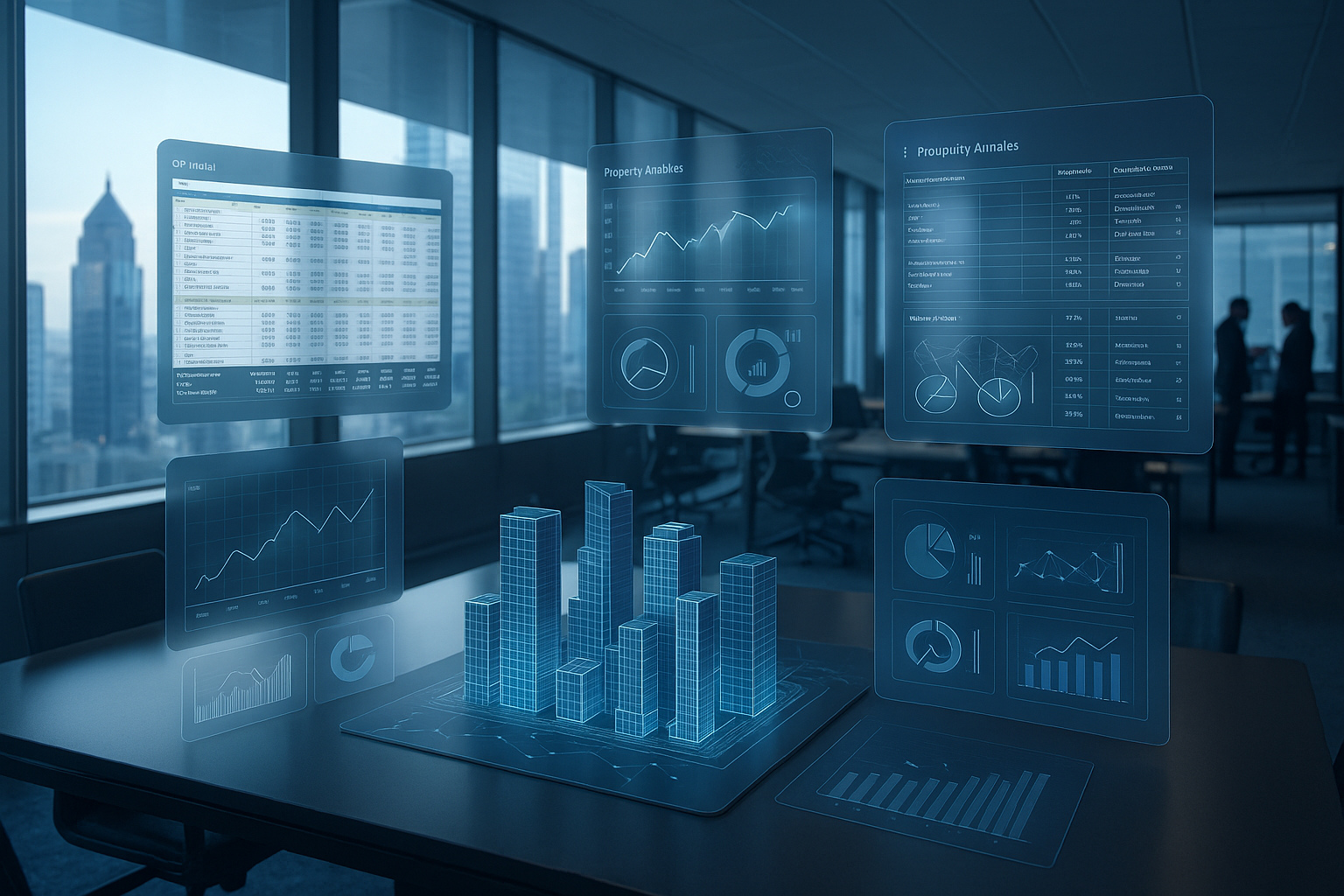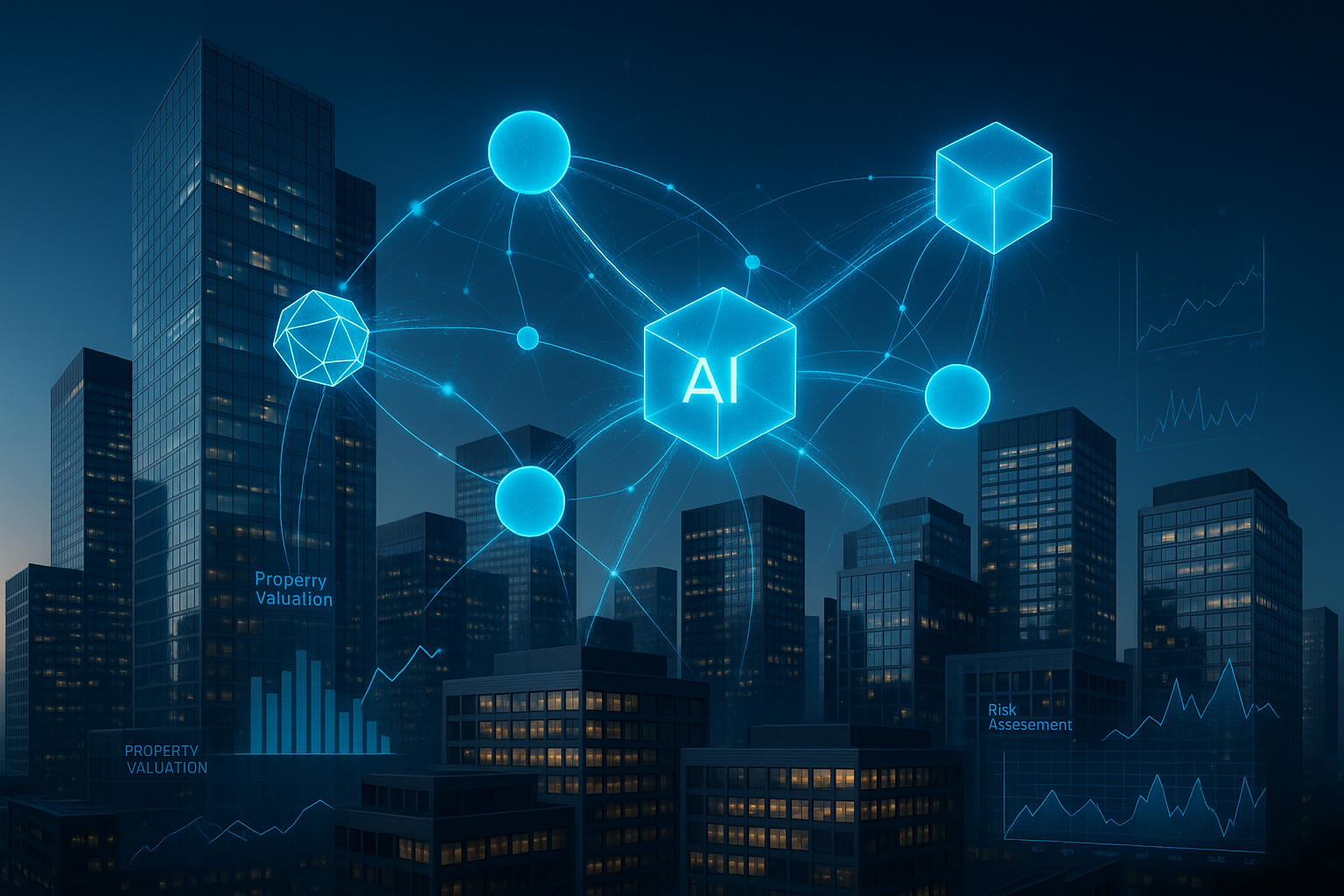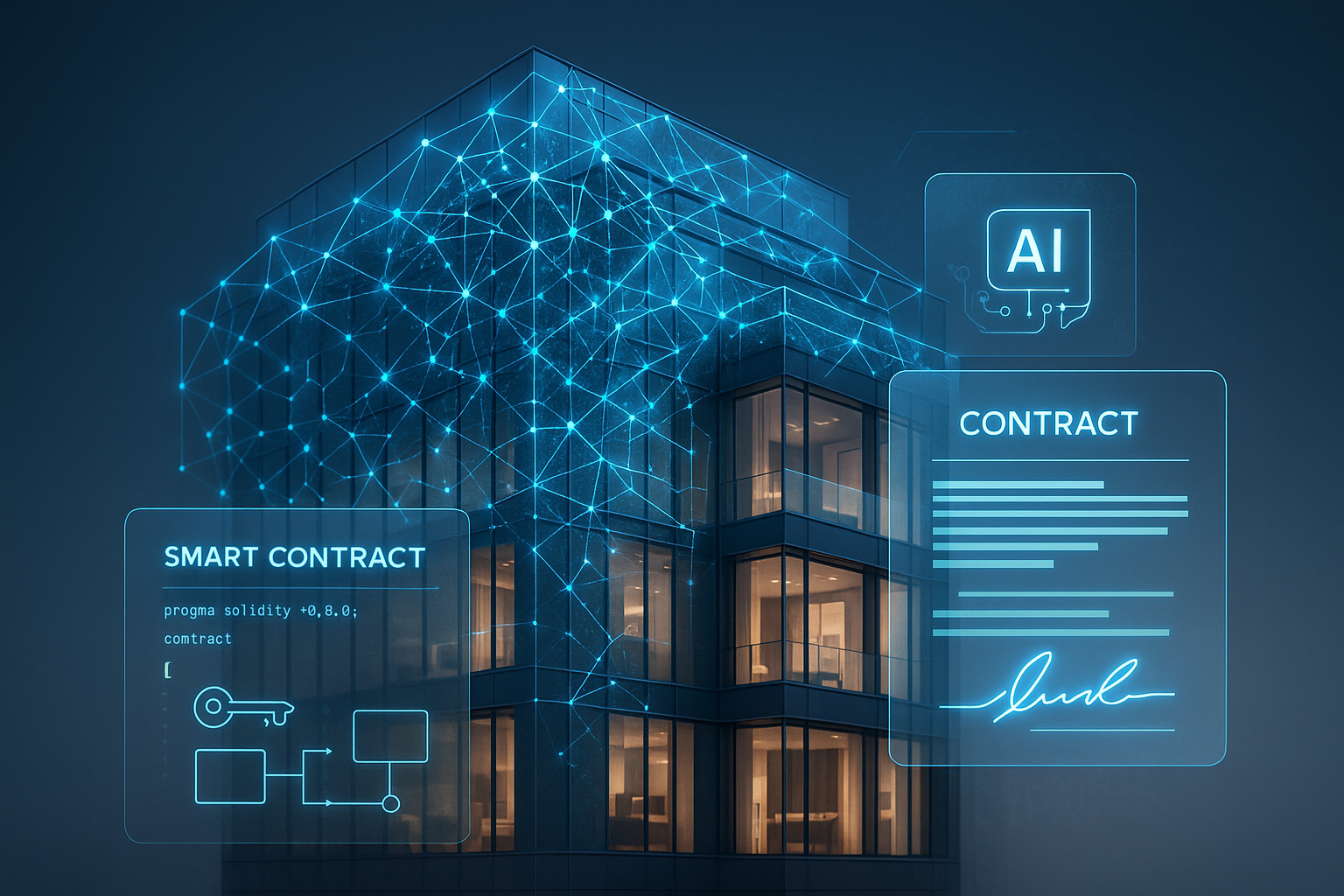
AI in 2025: Breakthroughs, Real-World Impact, and Strategic Best Practices for Enterprise Leaders
Caiyman.ai Research Team
AI Solutions Architect
2025 stands as a defining year in the evolution of artificial intelligence, with foundational advances converging to propel enterprises into a new era of intelligent transformation. The combined force of advanced AI agents, generative models, multi-agent systems, and cutting-edge integrations like IoT and blockchain is not only reshaping business operations but also redefining what’s possible in efficiency, innovation, and strategic leadership.
This comprehensive guide explores the latest technology breakthroughs, sectoral impact, enterprise-proven best practices, and the market landscape of AI in 2025—equipping you to drive your organization’s success into the future. As you read, discover how Caiyman.ai can be your trusted partner in harnessing AI’s next wave.
Foundational Advancements Shaping AI in 2025
The technological underpinnings of modern AI have never been stronger. Enterprises now leverage a new generation of AI agents and multi-agent systems (MAS), fueled by rapid advancements in large language models (LLMs), generative AI, and robust security/ethical frameworks.
The Next Generation of AI Agents and Multi-Agent Systems
AI agents have matured beyond task-specific automation to become adaptive, multimodal, and semi- or fully autonomous systems. Today’s agents exhibit sophisticated reasoning, context-awareness, and proactive self-correction—integrating LLMs with modular perception, cognition, and action components for complex real-world problem-solving (The AI Agent Revolution).
Multi-agent systems (MAS) enable dynamic collaboration between fleets of AI agents, each specializing in subtasks yet able to communicate through open standards like FIPA-ACL and KQML. New orchestration frameworks allow these agents to coordinate efficiently, scaling decision-making and operational intelligence across entire enterprises or complex digital ecosystems (AI Agent Development Blueprint).
Generative AI and Foundation Models Transforming the AI Stack
2025 has brought a new generation of generative AI models across modalities—text, code, images, and video. Google’s Gemini 2.0, OpenAI’s o3-mini, and DeepSeek’s R1 lead the frontier, offering enhanced multi-modal reasoning and creative capabilities (IoT Analytics, Crescendo AI).
Advanced LLMs provide brains for more intelligent agents, using techniques like Chain-of-Thought prompting and Retrieval-Augmented Generation (RAG) to sharpen focus and reduce hallucination. Hybrid approaches—combining fine-tuning, domain-specific adaptation, and external data retrieval—enable bespoke solutions for varied enterprise contexts (Google Cloud).
Integration with IoT and Blockchain for Enterprise Trust and Efficiency
AI now seamlessly integrates with real-time IoT data streams, enabling smart building management, predictive maintenance, and energy optimization. These agents orchestrate entire building subsystems, ensuring personalized and adaptive environments (AI in Institutional CRE Analysis).
Blockchain, meanwhile, underpins new paradigms for asset tokenization, transparent supply chains, and decentralized, AI-driven finance solutions—bolstering trust, data provenance, and compliance in industries from real estate to logistics (The AI Agent Revolution).
Amidst this surge, modern security and ethical frameworks—such as zero-trust architectures, explainability, and the EU AI Act—ensure that AI innovation aligns with societal values, human agency, and regulatory mandates (Protiviti).
Real-World Impact: Transformative AI Applications Across Industries
Advanced AI and MAS technologies move swiftly from labs to boardrooms, powering measurable transformation across commercial real estate, healthcare, manufacturing, finance, and the public sector.
Commercial Real Estate (CRE)
AI-driven platforms like JLL GPT automate risk assessment, ESG reporting, marketing, and investment analysis. Royal London Asset Management’s use of AI for energy savings (59% reduction, 708% ROI) and Growthpoint’s rapid financial reporting (from weeks to hours) exemplify the sector’s operational leap. AI-based site selection—such as Tango Analytics for Dunkin’ Brands—enables optimal growth locations and portfolio rebalancing (see AI in Institutional CRE Analysis).
Healthcare
AI agents power clinical decision support, continuous patient monitoring, automated appointment scheduling, tailored treatment plans, and accelerated drug discovery. UK’s NHS drives measurable reductions in diagnostic errors, improved outcomes, and up to 35% shorter wait times through advanced AI resource planning and automation (The AI Agent Revolution).
Manufacturing and Logistics
Predictive maintenance, real-time quality control, and AI-driven production scheduling have led to a 42% improvement in maintenance accuracy and up to 35% reductions in errors for leading manufacturers. Automated warehouse management and route optimization deliver 23% boosts in delivery efficiency (The AI Agent Revolution).
Finance
Dynamic portfolio management via multi-agent reinforcement learning, real-time compliance monitoring, automated customer support, and generative AI-driven reporting anchor AI’s value in finance. Notable cases include BlackRock’s Aladdin and Clarity AI’s sustainability compliance platform (The AI Agent Revolution).
Public Sector
AI agents manage citizen service chatbots (reducing wait times from hours to minutes), automate tax compliance, and orchestrate healthcare resource allocation—delivering tens of millions in annual savings. Examples from major UK authorities and NHS trusts highlight material improvements in efficiency and service quality (The AI Agent Revolution).
Best Practices: Secure, Ethical, and Responsible AI System Deployment
To fully realize the promise of advanced AI, enterprises must deploy robust frameworks for security, governance, and continuous improvement.
- Multi-layered security: Employ threat modeling, continuous monitoring, and robust access management tailored to AI agent autonomy and complexity (AI Agent Development Blueprint).
- AgentOps: Operationalize AI lifecycle management with AgentOps—blending DevOps and MLOps principles to ensure agent orchestration, versioning, and safe task decomposition.
- Ethical AI: Mandate transparency, explainability, bias audits, and strong human-in-the-loop mechanisms, especially in regulated domains.
- Collaboration and policy: Foster human-AI collaboration, invest in workforce upskilling, and co-create ethical policies through multi-stakeholder engagement (Protiviti).
- Regulatory readiness: Comply with evolving laws (e.g., EU AI Act) and leverage sandbox environments for responsible innovation, partnering with legal, audit, and compliance teams from the start.
Caiyman.ai specializes in helping organizations build secure, ethical, and auditable AI workflows, tailored to sectoral requirements and futureproofed against emerging risks.
AI Market Dynamics and Leading Innovation Players in 2025
The AI agents and generative AI market is projected to surge from $5.29 billion in 2023 to over $25 billion in 2025, with a 40%+ annual growth rate and a trajectory toward $1.3 trillion by 2032 (IoT Analytics, GlobeNewswire, UNCTAD).
- Big Tech leadership: Google (Gemini/Gemma), OpenAI, Microsoft, Amazon Web Services, Apple, NVIDIA, and Meta drive innovation and ecosystem growth (IoT Analytics, UNCTAD).
- Startup dynamism: New entrants rapidly expand offerings in agent orchestration, domain-specialized GenAI, and agentic platforms (GlobeNewswire).
- Regional perspectives: North America leads on investment and innovation, China advances in frontier research, and Europe prioritizes regulation and trusted AI adoption (Stanford HAI).
When evaluating AI partners, consider integration ease, security posture, developer ecosystem, regulatory alignment, and case-proven ROI. Strategic technology selection and trusted partnerships are now central to sustainable AI leadership.
Looking Forward: Strategic Priorities for the AI-Driven Enterprise
The convergence of autonomous AI agents, generative models, IoT, and blockchain is generating game-changing value for organizations. But as capabilities expand, so do expectations for ethical, secure, and transparent deployment—placing a premium on responsible leadership, continuous learning, and strategic investment (The AI Agent Revolution).
Now is the time for decision-makers to embrace proactive, value-driven strategies—empowering their teams to confidently chart the future of intelligent enterprise.
Partner with Caiyman.ai to Accelerate Your AI Journey
Ready to unlock your competitive advantage through the latest in advanced AI? Caiyman.ai is your expert partner for strategy, engineering, deployment, and workforce enablement—across all major sectors.
Contact us to schedule an innovation consultation, explore proofs of concept, or discuss AI upskilling tailored to your organization.
Sources
- Stanford HAI, AI Index 2025: State of AI in 10 Charts (2025)
- Mark Craddock, The AI Agent Revolution: Navigating the Future of Human-Machine Partnership (2025)
- AI TRENDS AND FUTURE IMPACT, Protiviti (2025)
- The leading generative AI companies, IoT Analytics (2025)
- AI Agents Market Report 2025, GlobeNewswire (2025)
- Demystifying AI Agents in 2025: Separating Hype From Reality and Navigating Market Outlook, Alvarez & Marsal (2025)
- AI Agent Development Blueprint (2025)
- AI in Institutional CRE Analysis (2025)
- Technology and Innovation Report 2025, UNCTAD (2025)
Share this article
Related Articles

Claude for Financial Services: Enterprise AI Platform Transforming Real Estate Finance in 2025
Discover how Anthropic's Claude for Financial Services is revolutionizing real estate finance through enterprise-grade AI agents, automated modeling, and seamless data integration—delivering proven 20% productivity gains across major financial institutions.

Multi-Agent AI Systems Transforming Commercial Real Estate Finance in 2025
Discover how multi-agent LLM frameworks are revolutionizing CRE finance, with 60% of institutional investors now using AI for underwriting and asset management while achieving 20% reductions in valuation discrepancies.

AI-Powered Smart Contracts in Real Estate: Complete 2025 Implementation Guide
Essential guide for real estate professionals implementing AI-powered smart contracts, featuring platform comparisons, security frameworks, and strategic roadmaps for blockchain adoption in property transactions.